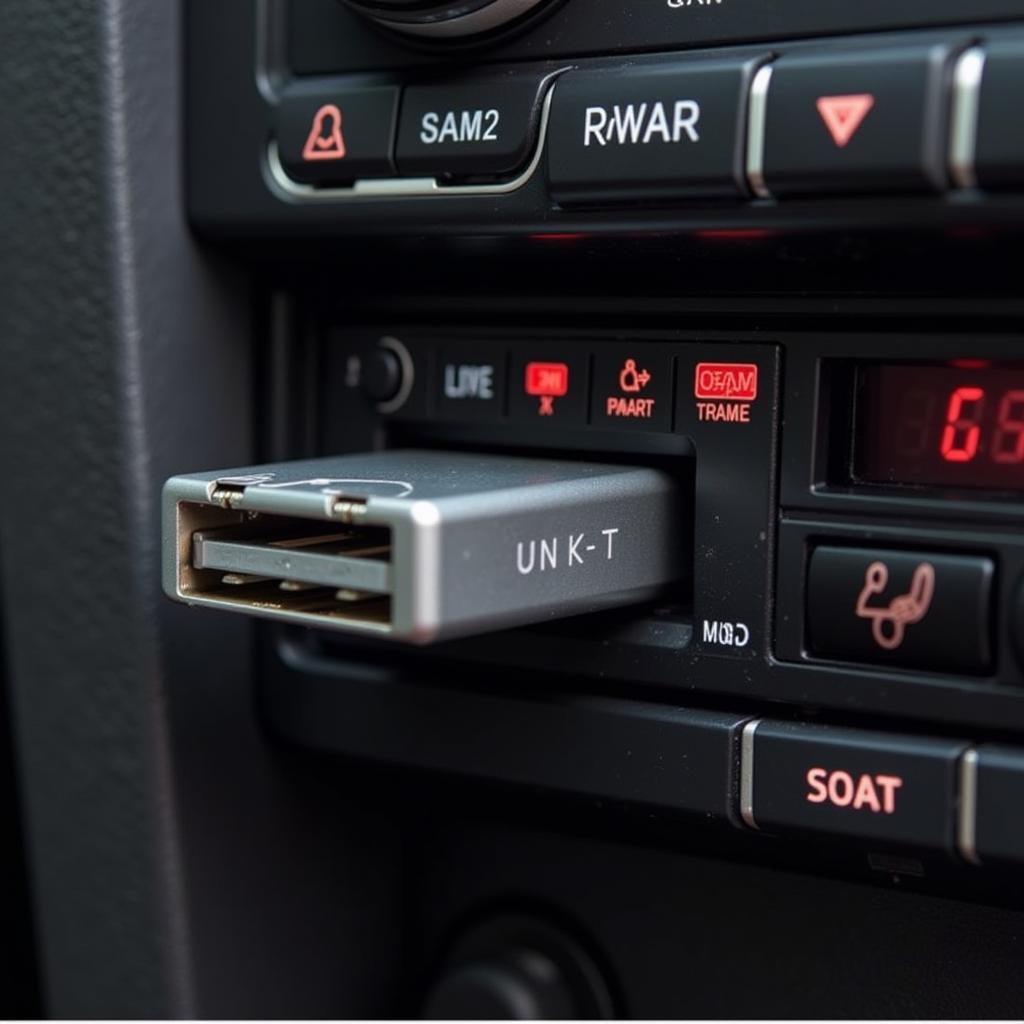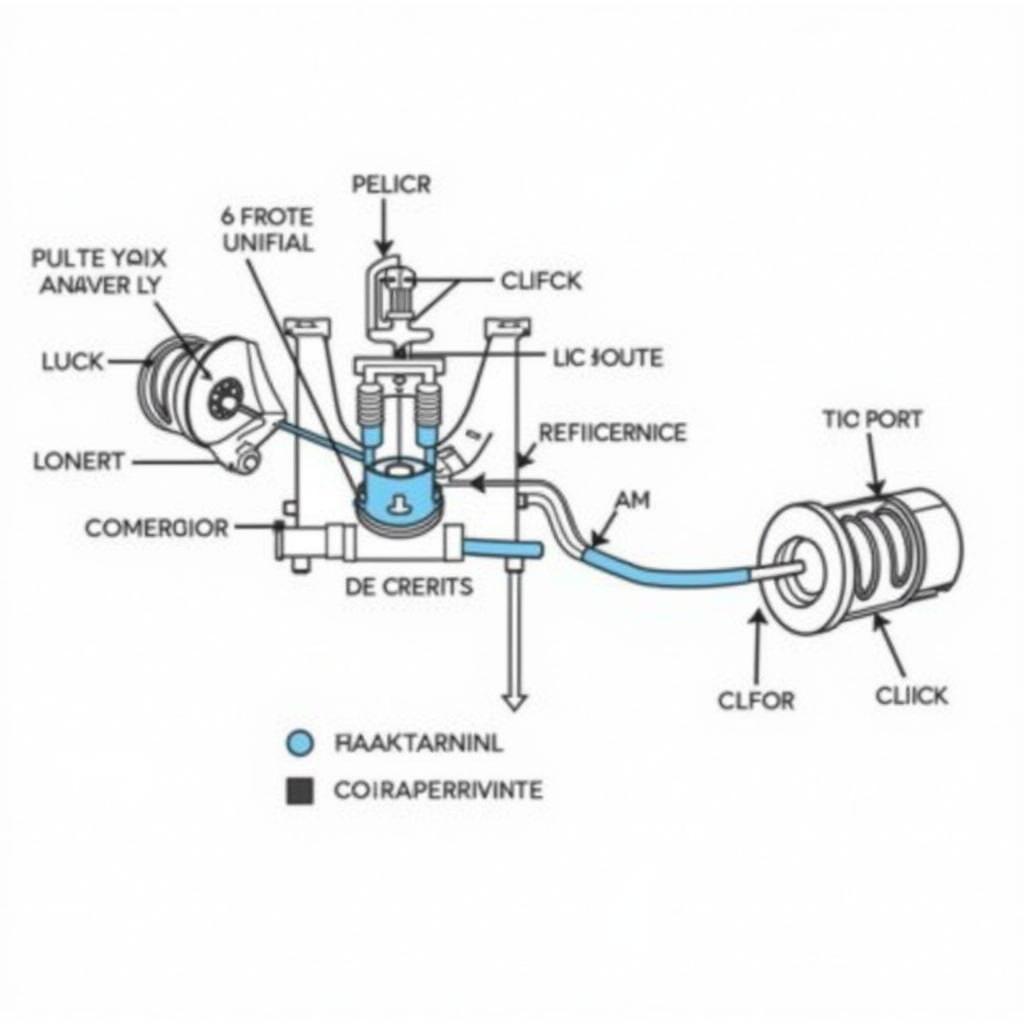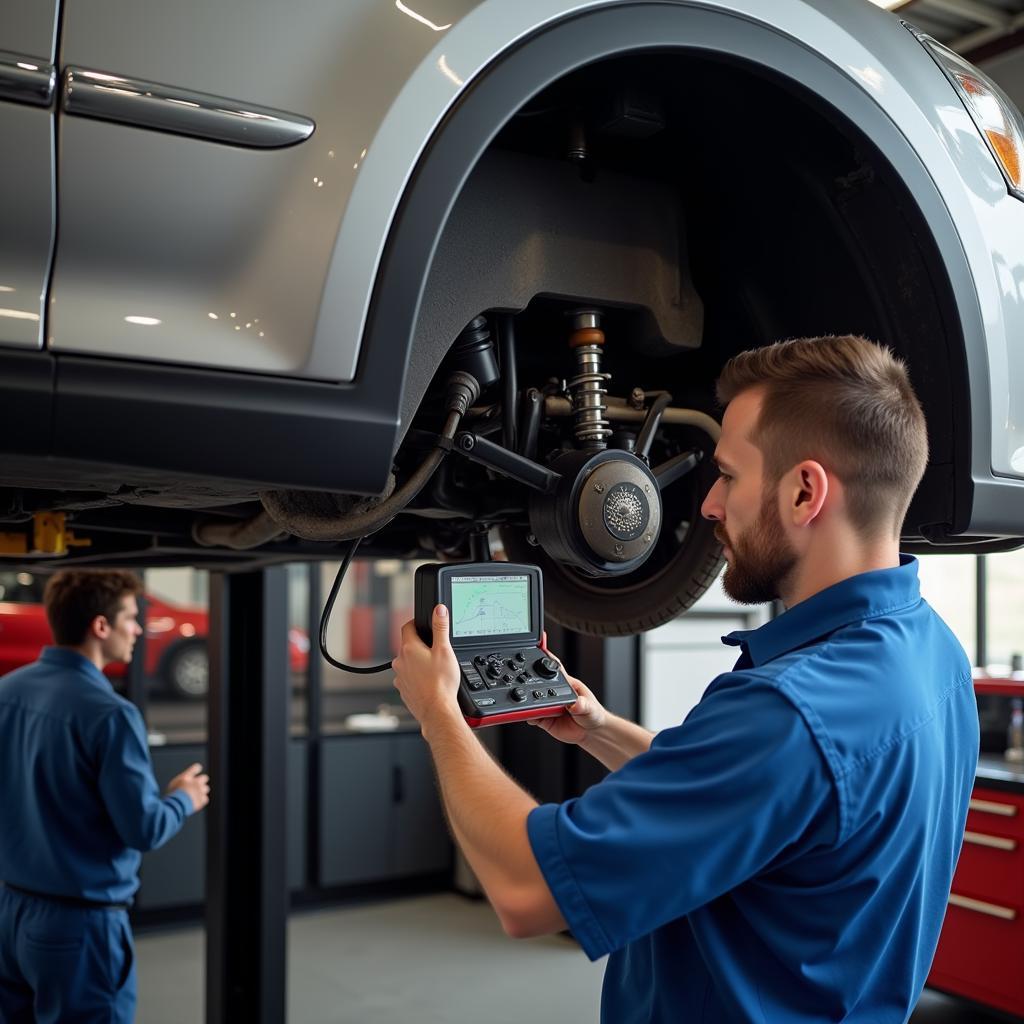Buying a new car is an exciting experience, but it can also be stressful when you encounter mechanical problems. While new cars are generally more reliable than older vehicles, they’re not immune to issues. Understanding common New Car Mechanical Problems and how to deal with them can save you time and money.
Common New Car Mechanical Problems
Even the most well-engineered cars can experience issues. Here are some of the most common mechanical problems found in new vehicles:
Engine Problems
- Engine Misfires: This can be caused by a faulty spark plug, ignition coil, or fuel injector. You may notice a rough idle, hesitation during acceleration, or a reduction in fuel efficiency.
- Oil Leaks: While rare, oil leaks can occur due to faulty seals or gaskets. Look for signs of oil dripping on the ground or under the car.
- Engine Noise: A rattling, knocking, or grinding sound from the engine could indicate a serious issue, such as a worn bearing or piston.
Transmission Problems
- Rough Shifting: This can be caused by a faulty transmission fluid, faulty sensors, or problems with the transmission control module.
- Delayed Shifting: This could be a sign of a problem with the transmission’s internal components or a faulty sensor.
- Slipping Gears: This can be a sign of a more serious problem with the transmission’s clutch packs or internal components.
Electrical Problems
- Battery Problems: While new batteries are generally reliable, problems can occur due to defects or improper charging.
- Electrical Malfunctions: Faulty wiring or electrical components can lead to a range of problems, from malfunctioning lights to a complete loss of power.
Brake Problems
- Squeaking or Grinding: These noises can indicate worn brake pads or rotors.
- Spongy Brakes: A soft or mushy brake pedal could indicate low brake fluid, a leak, or a problem with the brake booster.
Suspension Problems
- Clunking or Clicking Noises: These noises can be caused by worn suspension components, such as ball joints, control arms, or tie rod ends.
- Uneven Tire Wear: This can be a sign of alignment issues or a problem with the suspension.
What to Do If You Experience New Car Mechanical Problems
If you notice any of the problems listed above, it’s important to address them immediately.
Here are some steps you can take:
- Check Your Owner’s Manual: The owner’s manual can often provide valuable information about common problems and solutions.
- Take Your Car to a Reputable Mechanic: If the problem is beyond your skill level, consult a qualified mechanic specializing in new vehicles.
- Contact the Dealership: If you’re still under warranty, contact the dealership where you purchased the car. They may be able to assist with diagnostics and repairs.
- Document Everything: Keep a record of all the problems you experience, including the dates, symptoms, and any repairs made. This information can be helpful if you need to file a claim with the manufacturer.
Here’s what to look for in a mechanic:
- Experience: Look for a mechanic with experience working on new vehicles.
- Certifications: Check for ASE certifications, which demonstrate a mechanic’s expertise.
- Reputation: Ask for recommendations from friends, family, or online reviews.
“I recommend that new car owners always stay proactive in their maintenance, even if the vehicle is under warranty,” says Robert Johnson, a seasoned automotive technician with over 20 years of experience. “Regular inspections can help prevent major problems down the road.”
Can I Return a New Car If It Has Problems?
If your new car has significant mechanical problems, you may have the right to return it. Laws vary by state, but many states have lemon laws that protect consumers from defective vehicles. However, it’s crucial to act quickly and follow the proper procedures. You can learn more about lemon laws by consulting with an attorney or visiting the National Highway Traffic Safety Administration (NHTSA) website.
What is a Lemon Law?
Lemon laws are designed to protect consumers who purchase defective new vehicles. These laws vary by state but generally allow consumers to return a vehicle if it has a significant defect that cannot be repaired after a reasonable number of attempts.
How to Avoid New Car Mechanical Problems
While some mechanical problems are unavoidable, there are several things you can do to reduce the risk of issues:
- Follow the Maintenance Schedule: Adhering to the manufacturer’s recommended maintenance schedule is crucial for keeping your car running smoothly.
- Use Quality Fuel: Using high-quality gasoline can help prevent engine problems.
- Drive Carefully: Aggressive driving can put excessive strain on your car’s components, leading to premature wear and tear.
“The majority of new car mechanical problems are preventable through proper maintenance and driving habits,” states Sarah Thompson, a leading automotive expert. “By following the manufacturer’s recommendations, you can significantly reduce the risk of issues.”
Conclusion
New car mechanical problems can be frustrating, but they are not always a reason to panic. By understanding common issues, taking proactive steps, and working with a reputable mechanic, you can get your vehicle back on the road and minimize the inconvenience.
If you have any further questions about new car mechanical problems, or any other auto-related concerns, please feel free to contact us. We’re here to help.
AutoTipPro
+1 (641) 206-8880
500 N St Mary’s St, San Antonio, TX 78205, United States
FAQ
Q: What are the most common new car mechanical problems?
A: Common problems include engine misfires, oil leaks, transmission issues, electrical malfunctions, brake problems, and suspension issues.
Q: What should I do if my new car has a mechanical problem?
A: Check your owner’s manual, take it to a reputable mechanic, contact the dealership, and document everything.
Q: Can I return a new car if it has problems?
A: Yes, in many cases, you can return a defective new car under state lemon laws.
Q: How can I avoid new car mechanical problems?
A: Follow the maintenance schedule, use quality fuel, and drive carefully.
Q: What are lemon laws?
A: Lemon laws protect consumers from defective new vehicles. They allow consumers to return a vehicle if it has a significant defect that cannot be repaired after a reasonable number of attempts.







Leave a Reply